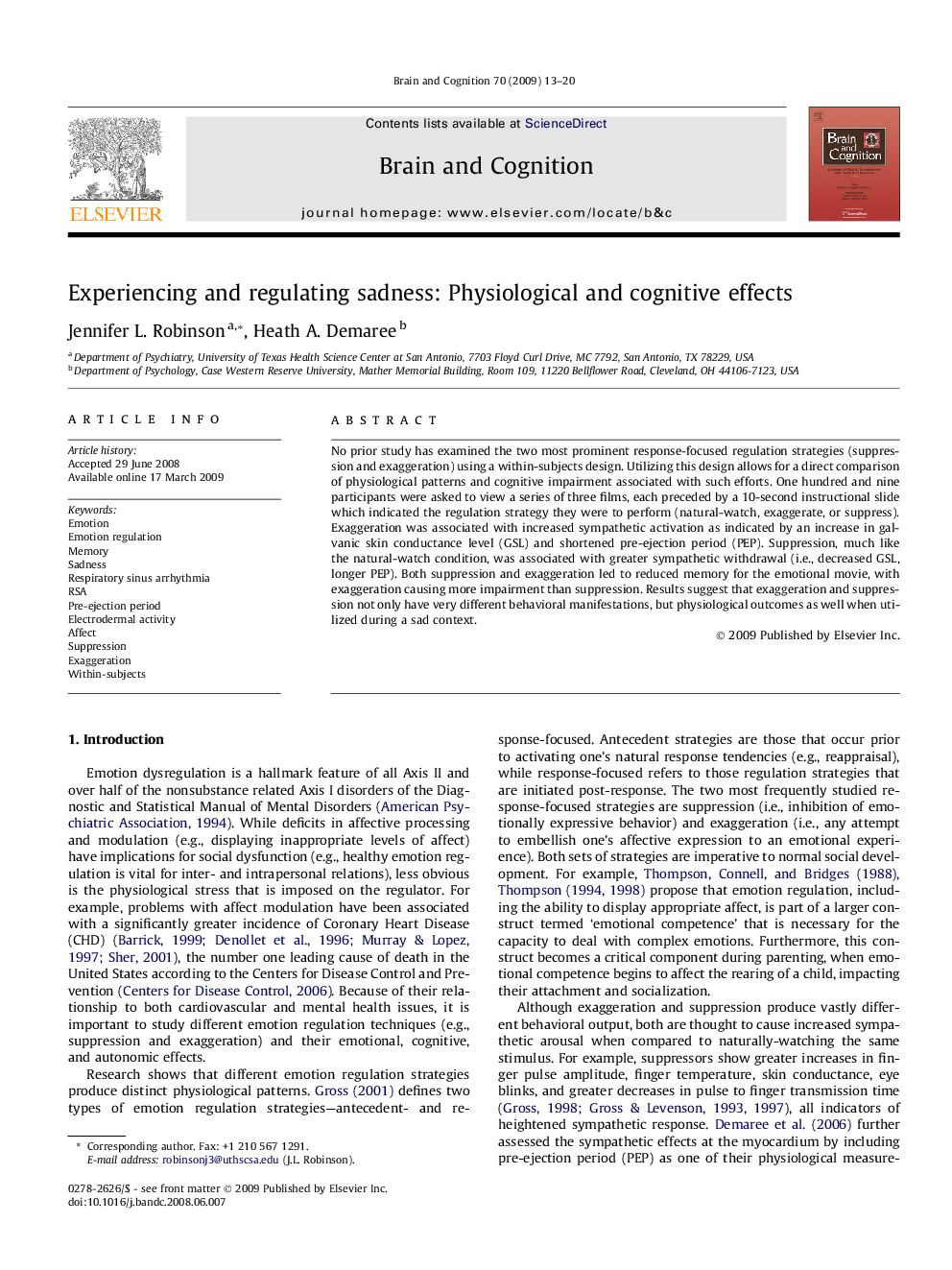| کد مقاله | کد نشریه | سال انتشار | مقاله انگلیسی | نسخه تمام متن |
|---|---|---|---|---|
| 924903 | 921290 | 2009 | 8 صفحه PDF | دانلود رایگان |

No prior study has examined the two most prominent response-focused regulation strategies (suppression and exaggeration) using a within-subjects design. Utilizing this design allows for a direct comparison of physiological patterns and cognitive impairment associated with such efforts. One hundred and nine participants were asked to view a series of three films, each preceded by a 10-second instructional slide which indicated the regulation strategy they were to perform (natural-watch, exaggerate, or suppress). Exaggeration was associated with increased sympathetic activation as indicated by an increase in galvanic skin conductance level (GSL) and shortened pre-ejection period (PEP). Suppression, much like the natural-watch condition, was associated with greater sympathetic withdrawal (i.e., decreased GSL, longer PEP). Both suppression and exaggeration led to reduced memory for the emotional movie, with exaggeration causing more impairment than suppression. Results suggest that exaggeration and suppression not only have very different behavioral manifestations, but physiological outcomes as well when utilized during a sad context.
Journal: Brain and Cognition - Volume 70, Issue 1, June 2009, Pages 13–20